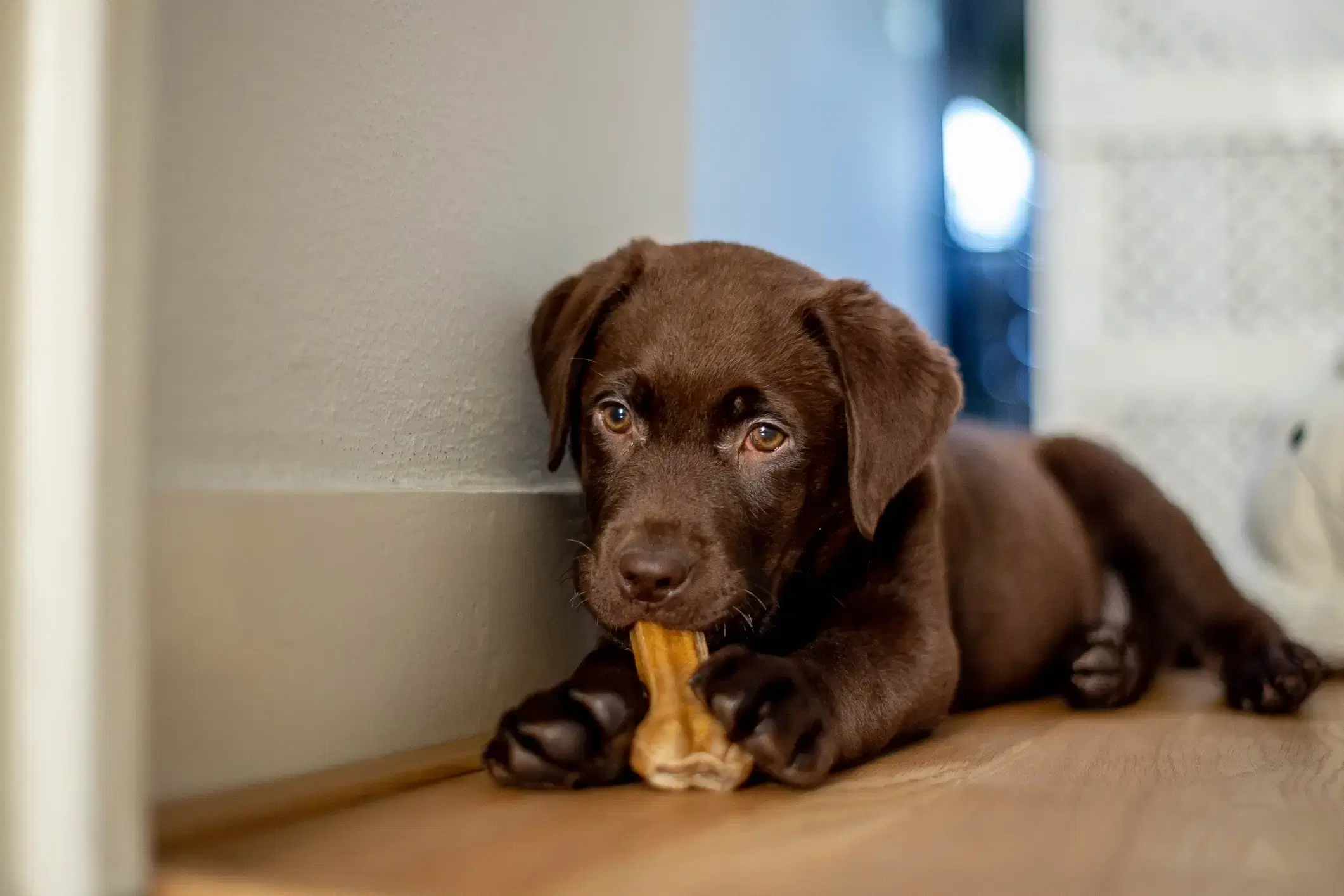5 Things You Need to Know About Your New Puppy
1. It’s never too early to start training
A puppy’s primary socialization period is before they are 16 weeks old, and this is also when they are most sponge-like, eager, and willing to listen and learn. No need to wait to start training until they hit their teenage years – we all know how much of an uphill battle that age can be.
From just 8 weeks old, puppies can learn to sit, come, and learn their names. Much smarter than you were when you were 8 weeks, right? Oh, and when you’re training, get down on the ground with your pup. They learn much better when you are down on their level.
2. The most important part of puppy training: Positive Reinforcement
You know when your school teacher would get you gold stars for not eating glue? Same logic.
Essentially, positive reinforcement is based on the idea that if you pay for what you want to see, you’re going to get more of it. In puppy terms, if we can reward our puppy for doing the things we want them to, our puppy will be much more likely to do that thing again – whether it’s coming towards us when we call them, responding to their name, or peeing and pooing in the right place.
Puppy training apps such as Zigzag help train puppies in a structured and logical way, where each stage of the program is designed to coincide with your puppy’s age and stage of development, so you get the right lessons when you need them most. And for any questions at all, they have a team of professional puppy coaches available 24/7 to help assist you and give you the right answers.
3. Puppies thrive on routine
Just like people do, to be honest, puppies thrive when they have a routine. Routines help make a little more sense of the world, as it becomes predictable; yet never boring.
It also helps them gain confidence in themselves, as they know how to deal with new experiences and situations better and better when they know what’s coming next.
Having a puppy training schedule will help you to:
Speed up the learning process of house training
Feel less of the stress and worries you go through as a new puppy parent
Have a confident puppy!
4. Introduce your puppy to the skills they need for life
Here are a few you can include in your puppy’s daily training schedule:
Potty Training
Sleep Training
Alone Training
Enrichment
Playing, chewing, tugging and sniffing
Socialization (at-home exercises).
Walks and socialization field trips
Life Skills and Obedience Training
We know what you’re thinking – it definitely looks like way too much for a small puppy. And there are so few hours in the day! But there’s nothing to worry about. We’ve kept in mind how everyone’s lives and schedules are different in our guide.
Our ‘sample day’ guide is there for you to print, use, and change as you see fit! Your schedule is likely to change and be adjusted the more you and your puppy settle in and train together, anyway.
5. Protect your pup
Vaccinations help protect your dog from parvovirus, canine distemper, leptospirosis, and infectious canine hepatitis and are important preventative healthcare. It means your dog won’t be at risk of catching this disease, and they also won’t pass them on.
You can also have your dog vaccinated against rabies and kennel cough.
Puppy shots take place from around 8 weeks of age, the first round at between 8-12 weeks, and then a follow-up set 2-4 weeks after the first. Check with your veterinarian when they are safe to walk on the floor after that.
No matter how careful we are with our dog’s safety, they can get into all kinds of mishaps. Certain breeds may also be prone to certain health conditions, so it may be a good idea to consider getting pet insurance. It can help you worry less about racking up huge bills at the vet, and help you have help getting peace of mind that if your dog becomes sick unexpectedly, you have coverage.
To find out more about puppyhood, head to Zigzag, the #1 puppy training app. Designed to make training accessible for all in a fun and motivational way, their program provides a structured plan broken down into chapters containing daily exercises - all aligned to the unique developmental windows of over 200 breeds.
Created by dog trainers and behaviorists, the Zigzag training program is 100% dedicated to puppyhood, backed by science, and underpinned by several guiding principles. Working in partnership with the training and behavior industry, they have received recognition and endorsement from leading organizations including the Pet Professional Guild and Association of Pet Dog Trainers.

With 15 years as a dog and cat parent, my pet articles are a mix of humor and firsthand experience - proof that the best stories often come with paws and purrs.











